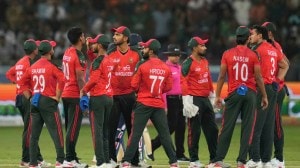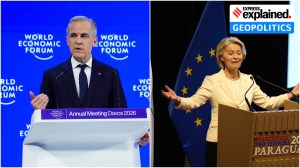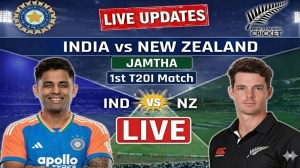It takes two to tango
The stance of the AIADMK and the Trinamul Congress has not helped resolve the present political impasse in Delhi. By opting to extend only o...

The stance of the AIADMK and the Trinamul Congress has not helped resolve the present political impasse in Delhi. By opting to extend only outside support to a possible BJP-led government, both parties have settled for being conveniently close to power but remaining free of the responsibilities it entails. Outside support makes for inside instability, of that there can be little doubt. The shenanigans of the Congress, which had ostensibly set to support the UF-led government in the 11th Lok Sabha from the outside, should convince any observer of the Indian political scene that political participation on these terms makes for uncertain governance. Not once, but twice in the space of half a dozen months, the Congress chose to play its bring-down-the-leader game, even though it had after the first occasion given an assurance that it would behave more reasonably in the future. The result of all that inconsistency was, of course, an unnecessary election. It is ironic, to say the least, that this very electioncould possibly lead to yet another arrangement that bears the same inherent dangers.
Of course, both Jayalalitha and Mamata Banerjee have their own political compulsions for taking the stands they do, especially since they do not agree on issues like the Ram temple, Article 370 and the Uniform Civil Code which are dear to the BJP. Since both of these women have strong ambitions to rule their respective states some time in the near future, they will have, willy-nilly, to weigh every factor carefully before making any move at this stage. Yet, the unvarnished truth is that they both chose to partner the BJP in the just-concluded election and presumably did so after having made their political calculations. In fact, Jayalalitha had at one point declared openly that she would like her party to be very much a part of the future government in Delhi should the BJP come to power. Now that the BJP is poised to do just that, it does not behove her to draw back at this stage. While Mamata Banerjee did not make anypublic pronouncements about future participation in government-formation, she too has a commitment to keep in ensuring that the party she favoured as an electoral ally is not now left on a limb.
This leads to the larger question of pre-poll arrangements. While the United Front has rightly been castigated for its rumbustious post-poll arrangement in the last House which brought 14 parties from all corners of the country to the Centre, at least they were bound by a Common Minimum Programme. In hindsight, the BJP would have been better advised to have entered into some kind of a pre-poll political programme with its electoral allies apart from the National Agenda that it is now preparing. This would have been evidence of the common interests binding these otherwise disparate groups and provided a basis for more secure post-poll relationships. That was an opportunity missed. Now the party will have to depend on the goodwill and good sense of its allies to see it through these extremely uncertain days.
- 01
- 02
- 03
- 04
- 05






























